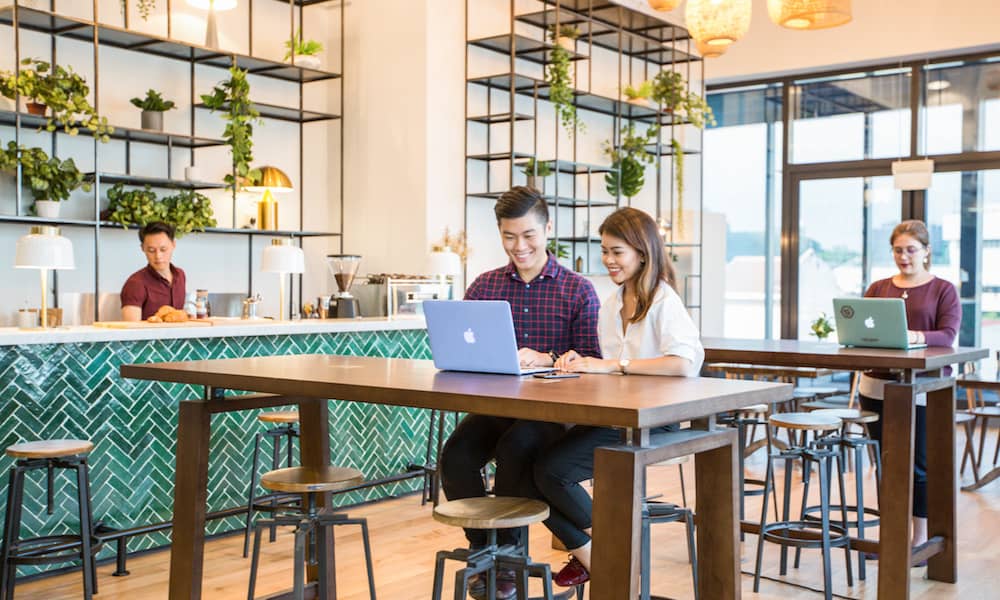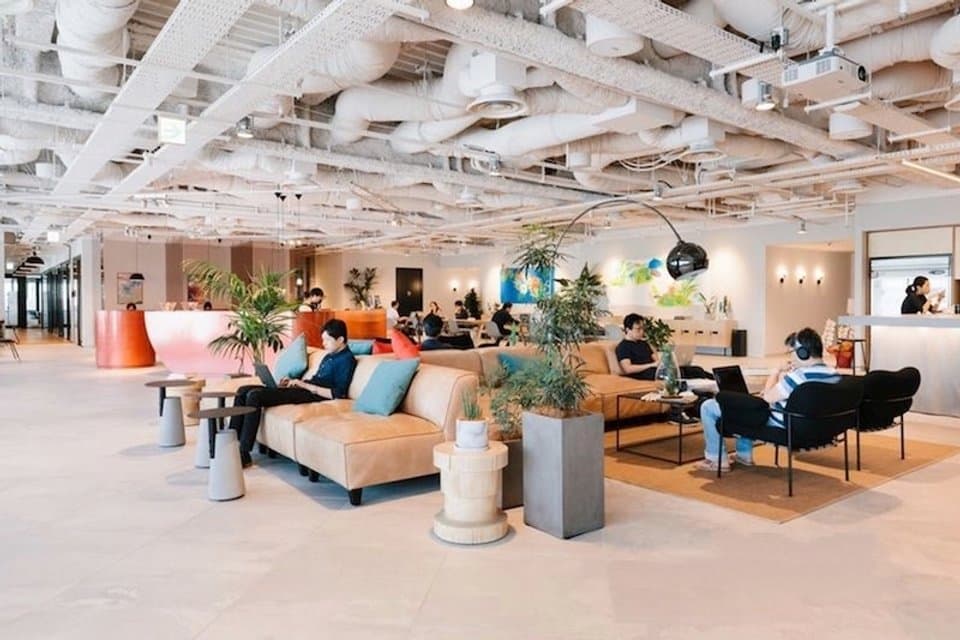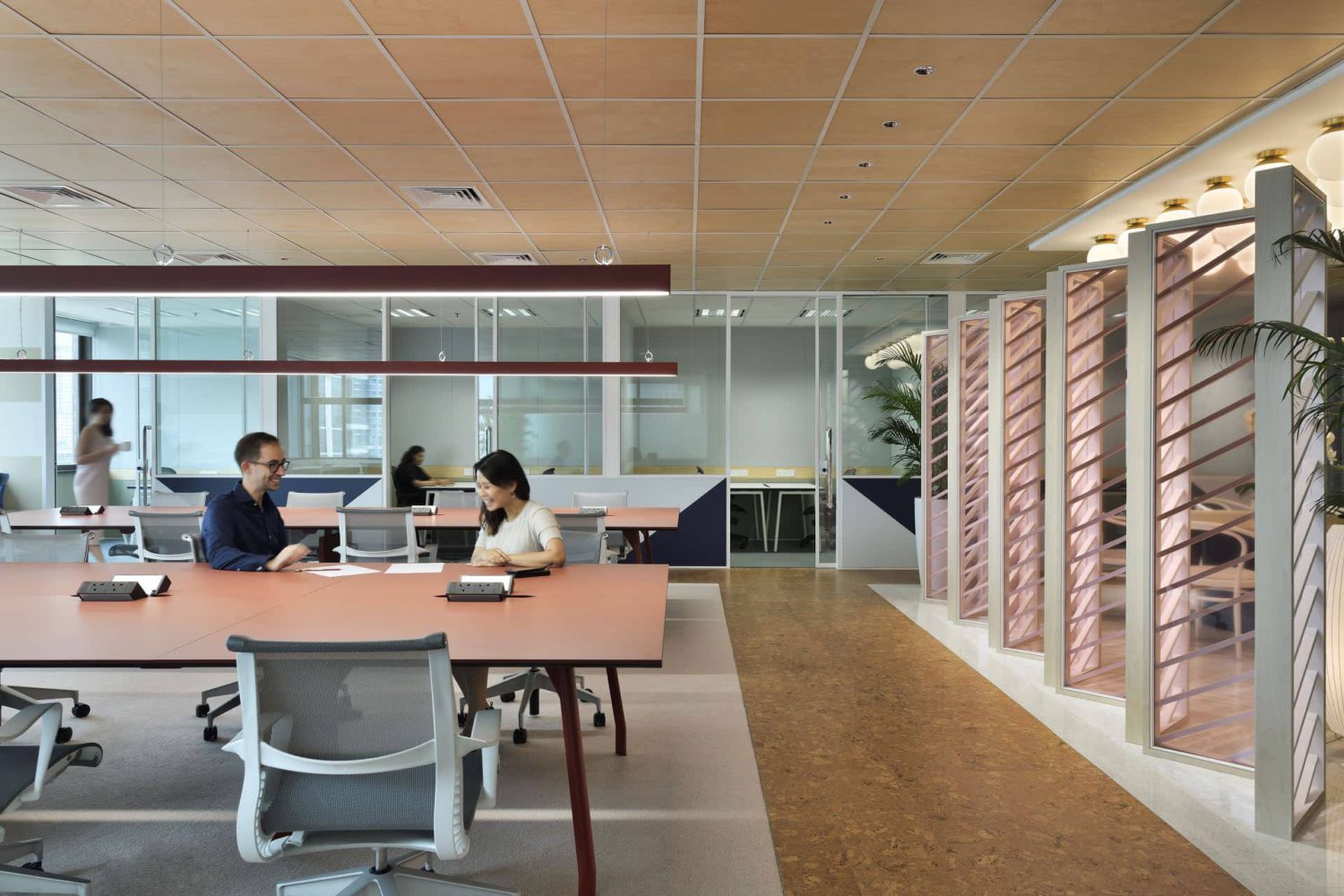
One of the biggest challenges to the coworking industry in 2020 is the drastic drop in the number of tenants due to the health risks posed by Covid-19. With the Singaporean government decreeing a nation-wide lockdown in early April, Singaporeans were driven into their homes and coworking spaces struggled to remain relevant during this period. After several months of coping with the pandemic, however, companies and individuals are learning to work around the health threat posed by Covid-19.
After the lockdown was lifted, coworking spaces saw a steady increase in inquiries. In the third quarter of 2020, more and more people were moving back into coworking spaces. Though the initial number of coworking tenants dropped to about 30% in the first half of the year during the earliest stages of the pandemic, the number of coworking tenants has risen to about 70% of the original number near the end of the year (CNA).
5 Reasons Singapore is Seeing A Rising Demand for Co-working Spaces Today

People are looking for flexibility.
There’s a lot of uncertainty surrounding Covid-19. No one knows what will happen to the economy and whether the public health situation will continuously see improvement or suffer another spike in virus cases.
To cope with the growing uncertainty, companies and organisations are looking for flexibility in terms of lease and scalability. Compared to traditional office leases that last at least 2 or 3 years, coworking spaces have shorter contracts. Some of them have year-long leases, but some have quarterly or even monthly terms to better accommodate the situation today. Moreover, coworking spaces are able to scale more easily and cope with changes in a company’s team sizes. Due to new hires or further downsizing, companies are looking for hybrid contracts that would allow them to adjust their office space sizes based on their changing headcount. This is a more cost-effective solution for both landlords and tenants alike.
(RELATED: Singapore Office Rental Outlook for 2021 – Shifting to Flexible Offices)
Companies are using core-flex model.

As companies start to settle into the new normal, many of them are recalling employees from their homes and calling them into collaborative spaces to better facilitate collaborative work. Companies are adopting the core-flex model where part of their labour force works in coworking spaces while the company retains a core office. This strategy allows companies to protect the health of their employees by minimising contact between employees while still allowing those who work together to interact and communicate more easily for better productivity.
Implementing this work setup requires companies to reach out to several coworking spaces to accommodate their teams in various locations.
Many companies are downsizing.
With the sudden outbreak of the Covid-19 virus, many nations had to implement strict lockdown protocols and the economy worldwide suffered greatly. Many companies, especially in the hospitality industry and services sector, had to let go of many of their employees in their struggle to survive.
(Related: How Flexible Offices and Coworking Spaces Can Help a Business Downsize Effectively)
With so many organisations downsizing, there’s an urgent need for companies to look for alternative workspaces to their traditional offices. Instead of renting smaller offices, companies are turning toward coworking spaces due to their convenience and cost-effectiveness.

Companies are looking for more affordable options and coworking spaces are readily available for organisations who are looking for an immediate solution to house their smaller teams. Companies no longer have to worry about furnishing and maintaining their offices; amenities are also provided for and in various locations that are more convenient for their workers.
The work-from-home setup has limitations.
Many workers, individual professionals, and entrepreneurs who were driven to work from home since Covid-19 broke out are beginning to realize the limitations of their work from home setup. Though working from home is a great solution for a limited time, it does put stress on one’s lifestyle.
Without a designated work environment that is separate from one’s home, the boundaries between work and everything else blurs. People are finding themselves more exhausted, their productivity lowered, and some are suffering from burnout after months of experiencing this.

As a result, many are turning towards coworking spaces as a compromise between the office and home. Renting coworking spaces is more affordable and convenient than going into the office like before the pandemic. At the same time, coworking spaces allow you to set clear boundaries between work and life, which improves your productivity and mental health.
Coworking spaces have adapted to the pandemic.
After months of adjusting to the restrictions brought forth by Covid-19, most industries, the coworking industry included, have adopted strategies to let them cope with the virus and operate safely.
Many coworking spaces installed physical barriers and shields to limit possible contamination between individuals. Others are utilising technology for better contact tracing and to minimise touchpoints and possible cross-contamination.
These measures have made it possible for tenants to move back into coworking spaces with the assurance that they are not risking their health.
(SEE: Top 8 Coworking Spaces in Singapore this 2021)

CEO
